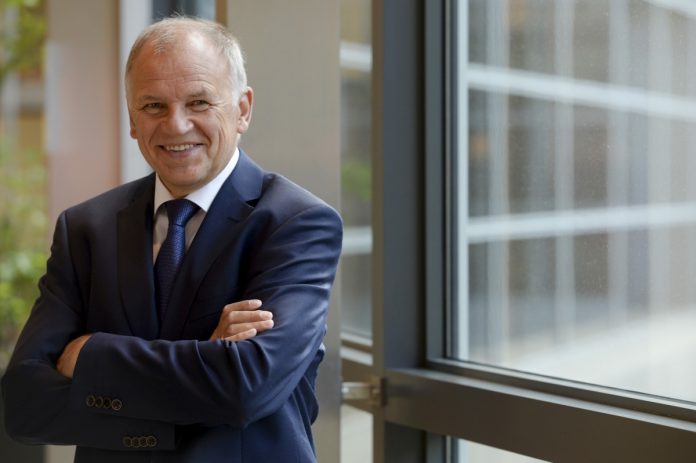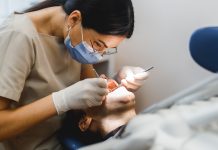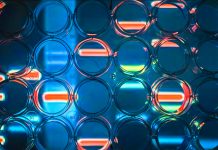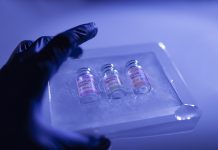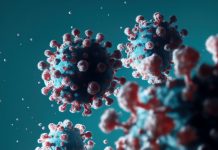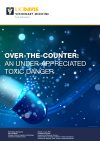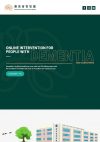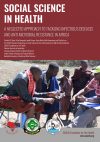Vytenis Andriukaitis, EU Commissioner for Health and Food Safety, stresses the need for prevention and spotlights joint efforts to tackle rare forms of cancer
The EU vs. cancer battle has been underway for 32 years – more than half of my lifetime. Since the Heads of State of the European Community countries gathered in 1985 and committed to launching the first “Europe against Cancer” programme, actions taken at EU-level have helped to extend and save lives. Indeed, the past three decades have seen rising cancer control standards in all 28 Member States, and earlier diagnosis and more effective treatments have led to a significant increase in cancer survivorship in most EU countries.
Despite our success, this is no time to rest on our laurels. In 2012, in the EU, 1.4 million men and 1.2 million women were diagnosed with cancer. Given today’s incidence rates, it is estimated that one in three men and one in four women in the EU will be affected by cancer before the age of 75. We must not forget that, despite more people surviving cancer, it remains the second most common cause of death in the EU.
A new iteration of the European Code Against Cancer
The EU takes a multi-pronged approach to cancer, focusing on prevention by addressing the risk factors and producing guidelines for quality screening; providing nearly €1 billion for collaborative research; and supporting Member States’ efforts to improve diagnosis and treatment, raise standards of care, improve patients’ quality of life and support survivors.
We know that some cancers can be avoided by adopting healthier lifestyles, and that outcomes can be greatly improved if cancer is detected early on. This is the premise behind the “European Code Against Cancer” – co-financed by the EU Health Programme. The Code, which was first published in 1987, and has undergone several updates to keep up with the evidence, aims to arm people with information on how they can lower their risk of cancer.
The fourth edition of the Code continues to emphasise the importance of avoiding tobacco, alcohol, and excessive sun exposure, as well as the benefits of maintaining a healthy body weight, being physically active, and being screened for certain types of cancer. It also includes important new recommendations to reduce cancer risk, such as vaccination against human papillomavirus, breastfeeding, and limiting the use of hormone replacement therapy.
At least one in three cancers is preventable, so heeding all 12 recommendations would go a long way in decreasing the burden of cancer in Europe.
European Reference Networks join the dots on rare forms of cancer
However, we cannot attribute all cancers to unhealthy lifestyle choices. Many cancers cannot be prevented no matter how healthy our choices and behaviours are. I am sure that every one of us can think of such an example in our family or circle of friends.
There are some rare, genetic forms of cancer which are extremely difficult to diagnose and treat and, sadly, many of them affect children. Such rare forms of cancer represent a particular challenge as specialist knowledge is often scarce, and patients and parents are sometimes left to scour the internet to find doctors and centres with the required expertise.
With knowledge and resources scattered across individual countries, the EU can provide significant added value by connecting the dots, bringing together expertise and maximising synergies between Member States.
This is precisely the aim of the European Reference Networks (ERNs) – unique and innovative cross-border networks that will help diagnose and treat rare and complex diseases, including rare forms of cancer. I am pleased to be launching the first 24 ERNs in Vilnius on 9-10 March 2017.
EU Joint Action on Rare Cancers
To complement and support these developments, the Commission, together with Member States, has recently launched the EU Joint Action on Rare Cancers. This provides a framework for stakeholders to work together not only to ensure the implementation of ERNs, but also to establish national cancer plans and clinical practice guidelines, and fund research.
No country alone has the knowledge and capacity to treat all forms of rare cancer, but by cooperating and exchanging life-saving knowledge at European level through ERNs, patients across the EU will have access to the best expertise available.
Prevention and more prevention, continues to be my message on this year’s World Cancer Day and, in this respect, the European Code Against Cancer remains our guide. Addressing the risk factors is the Commission’s first line of attack for reducing the burden of cancer. Lastly, I am optimistic about the potential of ERNs. Ensuring that they reach their full potential is one of my key priorities for 2017, and we are developing European cross-border telemedicine tools to this end. We will also ensure that ERNs receive support via a range of EU funding mechanisms such as the EU Health Programme, the programme notably for infrastructure financing (the Connecting Europe Facility), and the EU research programme Horizon 2020.
Vytenis Andriukaitis
Commissioner for Health and Food Safety
European Commission



